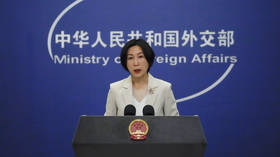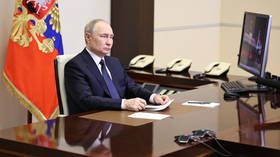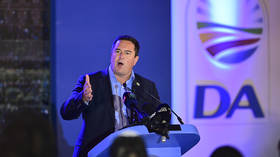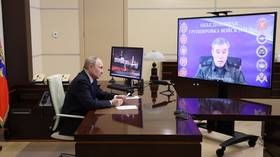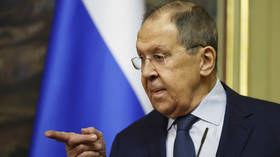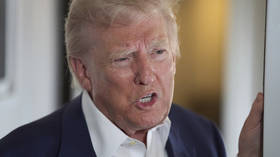Biden assesses impact of calling Xi a ‘dictator’
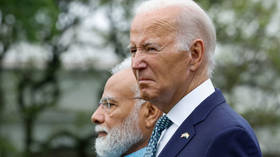
US President Joe Biden has dismissed concerns that his comment this week referring to Chinese leader Xi Jinping as a “dictator” could hinder his administration’s efforts to mend Washington’s strained relationship with Beijing.
Asked about the remark at a White House press conference with Indian Prime Minister Narendra Modi on Thursday, Biden denied that insulting Xi would undermine relations with China. “I expect to be meeting with President Xi sometime in the future, in the near term, and I don’t think it’s had any real consequence,” he said.
At issue was Biden’s comment on Tuesday at a political fundraiser in California, where he claimed that Xi had not known about an alleged spy balloon that was shot down after entering US airspace in February. “That’s a great embarrassment for dictators, when they didn’t know what happened.” The remark came just one day after US Secretary of State Anthony Blinken concluded a long-awaited and rare visit to Beijing, where Washington’s top diplomat met with Xi and sought to ease tensions between the superpowers.
Pres. Biden on calling Chinese President Xi a dictator: "We had an incident that caused some confusion, you might say, but Secretary Blinken had a great trip to China. I expect to be meeting with President Xi sometime in the future...I don't think it's had any real consequence." pic.twitter.com/LpZf0Nmric
— CSPAN (@cspan) June 22, 2023
The Chinese embassy in Washington delivered a formal protest on Thursday, just hours before Biden spoke dismissively of the controversy. “With the latest irresponsible remarks about China’s political system and its top leader, people cannot help but question the sincerity of the U.S. side,” the embassy said in a statement. “The Chinese government and people do not accept any political provocation against China’s top leader and will resolutely respond.”
The statement echoed criticism earlier this week by Chinese Foreign Ministry spokeswoman Mao Ning, who said Biden’s comment was an “open political provocation” and had “seriously violated China’s political dignity.”
Asked about becoming the first US president in recent memory to call his Chinese counterpart a “dictator,” Biden appeared to suggest that he was merely speaking his mind. “When we’re talking to our allies and partners around the world, including India, we let the idea of my choosing and avoiding saying what I think is the facts . . . is just not something I’m going to change very much.” He added that fears of a collapse in Sino-US relations were “hysteria.”
Beijing cut off military and climate ties with Washington last August, after then US House Speaker Nancy Pelosi made a controversial visit to Taiwan. Blinken’s planned trip to China earlier this year was postponed in the aftermath of the balloon incident. Ning blasted Biden’s decision to shoot down the balloon, saying Washington had “abused force, fully reflecting the US bullying and hegemonic nature.”
Republicans mocked Biden for appearing to read his answer to a reporter’s question about his “dictator” comment. There was also an awkward moment during Thursday’s welcoming ceremony for Modi’s state visit, where Biden slowly lowered his hand from over his heart after apparently mistaking the Indian national anthem for the “Star Spangled Banner” for about 20 seconds.
Gone in 20 Seconds. Joe Biden Holds his Hand to His Heart for National Anthem... It takes him a little while to realise it's not the American one pic.twitter.com/NbAkjhsanF
— RT_India (@RT_India_news) June 22, 2023
